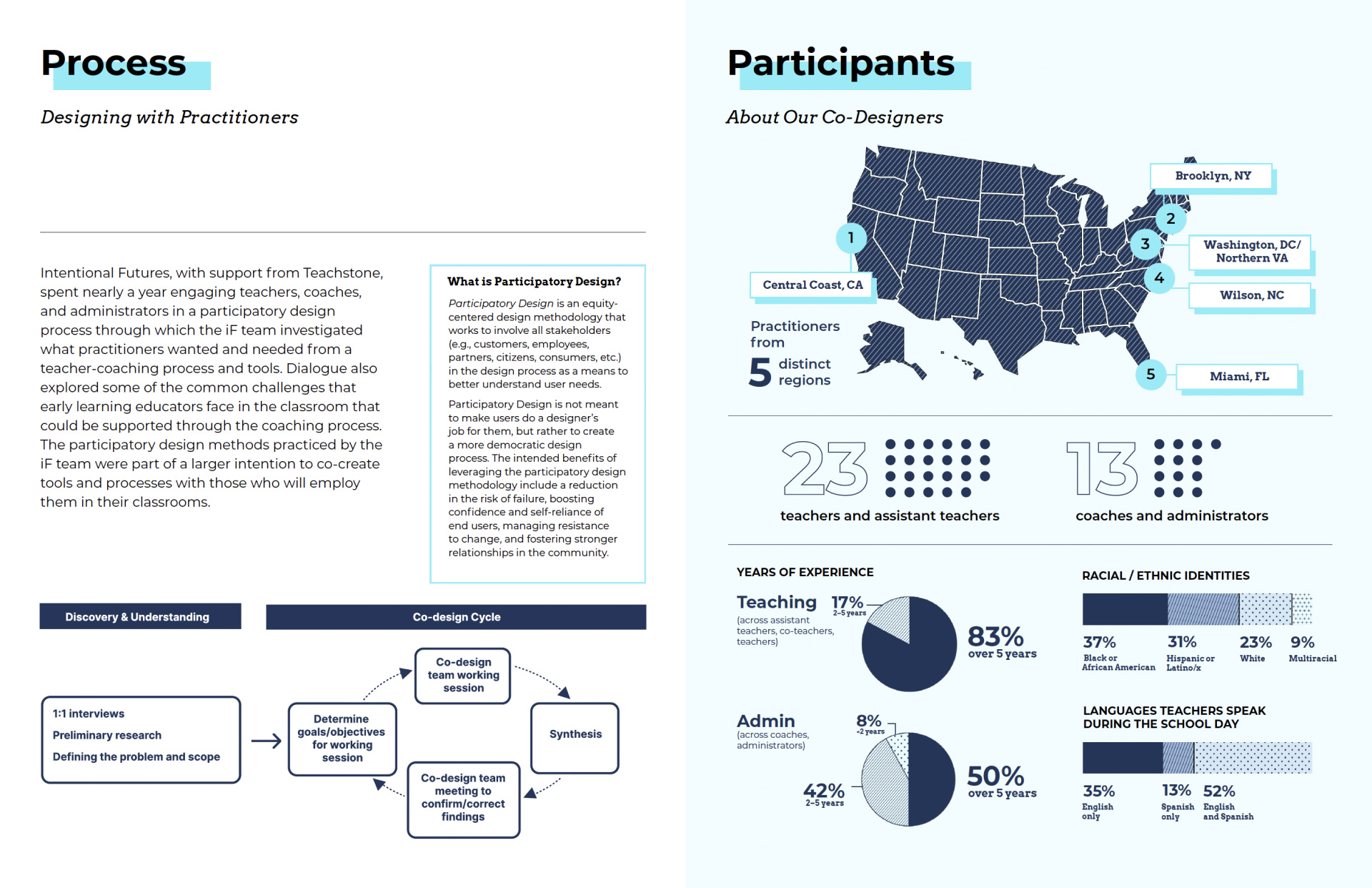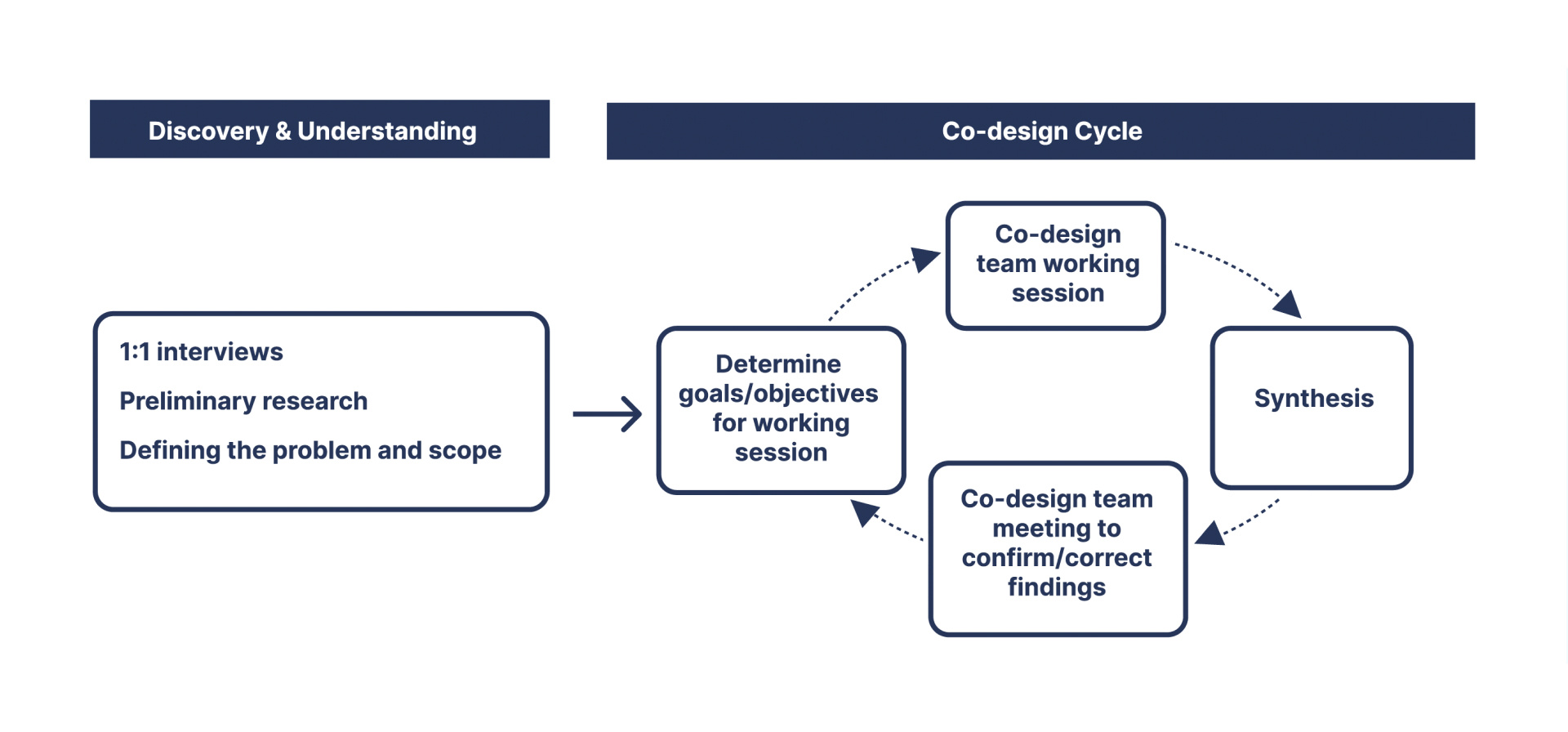Refining coaching for early learning professionals
Overview
Since the 1980s, research on educator professional development has found coaching to have a noteworthy impact on teachers’ practices. Several studies have demonstrated that coaching is an effective way to drive continuous improvement efforts and support teachers in building on their existing strengths. Although many models and tools to support coaching have been developed, there is a growing need to develop coaching frameworks with direct input from early childhood education (ECE) practitioners.
In response to this need, Teachstone (a leading organization in early learning) and Intentional Futures (iF), funded by the Bill & Melinda Gates Foundation, set out to collaborate with teachers, coaches, and administrators working in publicly-funded center-based programs with Black and Latino children ages three through four years old. The goal of our work was to understand what makes an effective early learning coaching experience and process.

"We chose iF to support this project because of their expertise in participatory research and design, and because their team is composed of former educators. Throughout the process, the team consistently gave the end users the mic, and ensured this process was educator-led."
- Snow Li, Program Officer Early Learning, U.S. Program
What we made
Intentional Futures, with support from Teachstone, spent nearly a year engaging teachers, coaches, and administrators in a participatory design process through which the iF team investigated what practitioners wanted and needed from a teacher-coaching process and tools. Dialogue also explored some of the common challenges that early learning educators face in the classroom that could be supported through the coaching process. The participatory design methods practiced by the iF team were part of a larger intention to co-create tools and processes with those who will employ them in their classrooms.

Impact
Teachstone and their network of stakeholders will use the findings from these partnerships to refine and innovate on their suite of continuous improvement tools, empowering teachers, coaches, and administrators to engage in coaching processes which have a direct impact on the classroom interactions that drive learning and development.
